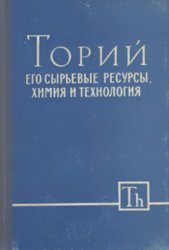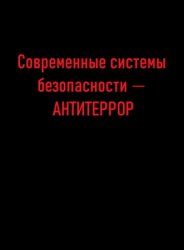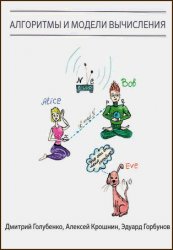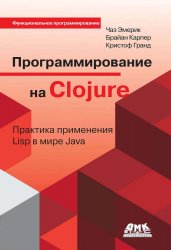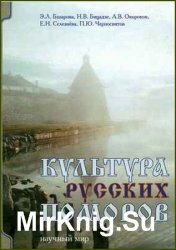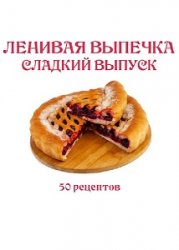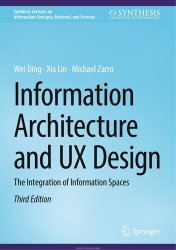 Название: IEC 61850: Digitizing the Electric Power Grid
Название: IEC 61850: Digitizing the Electric Power GridАвтор: Alexander Apostolov
Издательство: Artech House
Год: 2023
Страниц: 353
Язык: английский
Формат: pdf (true)
Размер: 28.1 MB
This book covers the digitalization of the grid from a practical point of view and helps you understand the principles used in the development of the standard and its multiple benefits of how they can help in all aspects of the specialists’ everyday work. The book demonstrates that the IEC 61850 standard is a new communications protocol and a completely new engineering environment using named data objects and attributes that support the interoperability between multifunctional devices from different manufacturers integrated in protection automation and control systems. It highlights the contribution of the standard in introducing high speed peer to peer communications that support different substation and wide area protection and automation related applications. You will be introduced to the different parts of the standard and their evolution from a substation centered approach towards its expansion targeting the coverage of the different domains of the smart grid. It approaches the subject from a practical point utilizing an expert’s years of experience. It provides numerous examples of the application of the standard for protection, automation, and control in smart grid. This is an excellent resource for utility specialists and researchers developing protection, automation and control devices in systems based on the standard; and by consultants helping with the implementation of the standard in different projects.
A communication network is simply a collection of connected objects. In this case, we refer to the objects as nodes. The physical network nodes are electronic devices that are attached to a network, and depending on their functionality are capable of creating, sending, receiving, or transmitting information over communication links. Fundamental properties of any network are the total number of nodes and the total number of links between nodes. Depending on the network topology, each node has a certain number of links that connect it to other nodes. The communication elements (nodes) can be computers, mobile devices, switches, routers, and the communication links can be coaxial cables, optical fiber cables, and wireless local area network (LAN). In a substation, the communication elements can be computers, different types of process interface devices, multifunctional IEDs, switches, routers, and the communication links can be shielded twisted pair cables or optical fiber cables, but, for some purposes, a wireless LAN can be used as well.
As discussed in previous chapters, digitization and digitalization did not start in the electric power industry but have been a significant trend in all areas of our private and professional lives. That is why the transition of our industry and the development of the IEC 61850 standard did not occur in an empty space but took advantage of many different technologies that have been developed and used over the last few decades. Considering that many PAC specialists do not have a computer or communications background, it is important to introduce the fundamentals of some of the technologies that have a direct impact on the digitization and digitalization of the grid.
TCP/IP and UDP/IP: In our everyday lives, we spend a lot of time on the internet, and it is amazing that there has now been a half-century of its development. In the background of the World Wide Web, file transfers, email, and many other applications is TCP/IP. According to the reference 7-layer OSI model, TCP is at the transmission layer 4, with IP at the network layer 3. However, the TCP/IP model combines the application, presentation, and session layers of the OSI model into an application layer interfacing with TCP. The data from the application layer is sorted in the transport layer into TCP segments.
TCP is a connection-oriented protocol that requires establishing a connection before transmitting the data and closing the connection once the transmission is complete. It determines how to break application data into packets that it sends to the network layer, supports the sequencing of data, and can guarantee its delivery to the destination router. Extensive error checking on the packets that it accepts from the network layer and acknowledgment of data are used in the communications and retransmission is performed in case of lost packets. The price of guaranteed delivery is slower speed, which limits its application together with the fact that it does not support broadcasting.
An alternative to TCP is the UDP published as RFC 769 in August 1980 and is used together with IP as the underlying protocol. The goal of UDP is to support the transmission of messages by application programs with a minimum of protocol mechanism. Like the TCP in the reference 7-layer OSI model, UDP is at the transmission layer 4, interfacing with the IP at the network layer 3. The UDP is a connectionless protocol with no requirements for opening, maintaining, or terminating a connection. It uses messages defined as datagrams and does not support data sequencing.
Contents:
Digitizing the Smart Grid – what it is and why we need it, Smart Grid Functions, Requirements for IEC 61850, Development of IEC 61850, IEC 61850 standard parts and technical reports, Substation Communications Basics, Technology Fundamentals, Object Modeling and Virtualization, IEC 61850 model details, GOOSE communications and their applications, Sampled Values (SV) communications and their applications, System Configuration Language (SCL) and its applications, Time and its applications, Testing of IEC 61850 Devices and Systems, Digital substations, Cyber Security, Integration of renewable distributed energy resources, Migration Strategies
Скачать IEC 61850: Digitizing the Electric Power Grid
[related-news] [/related-news]
Комментарии 0
Комментариев пока нет. Стань первым!
